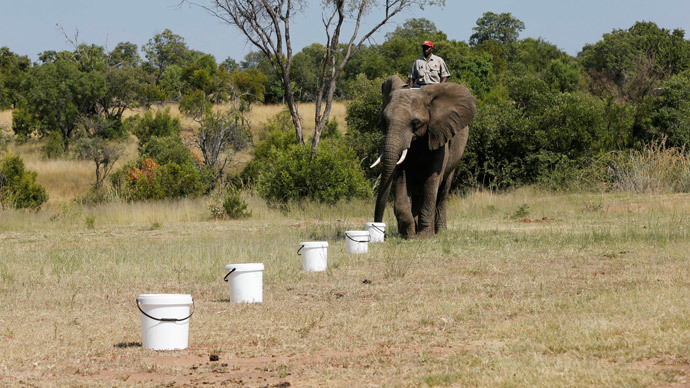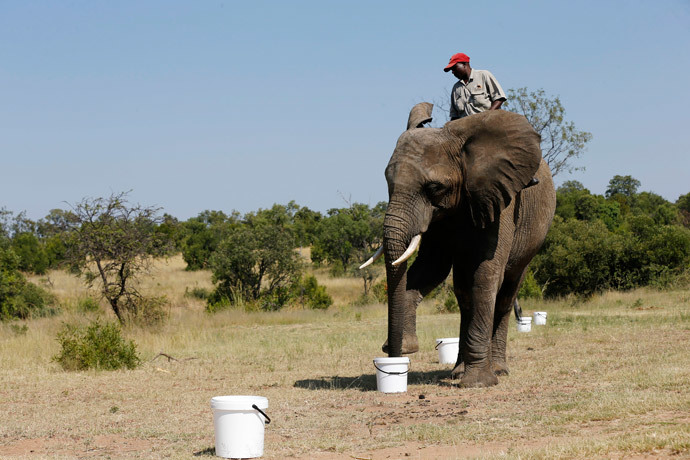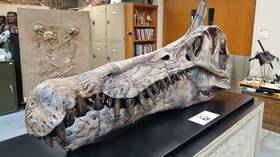Trunk detective: Sniffer elephants trained by US Army to detect landmines

Sniffer dogs around the world may just have met their match. Elephants in South Africa are being trained to detect landmines and explosives as well as poachers, while they are showing promising results, aided by their highly developed sense of smell.
The project was the brainchild of Sean Hensman, who noticed how an elephant was able to track him when he was growing up in Zimbabwe. Also experts were able to note how the animals were able to avoid landmines, which suggested they are able to sense abnormal scents.
During a demonstration, a 17-year-old male elephant called Chishuru walked past a row of buckets, one of which had a swab of TNT under it. The elephant would then put his truck into each of the buckets and then would raise his right leg when he thought he had found the explosives – he was right every time.
"An elephant's nose is amazing. Think about mammoths, which had to find food through the ice," Reuters reported Hensman as saying. Hensman runs an elephant ranch 180 kilometers from Johannesburg, where the animals are being trained.
The elephants’ sense of smell is so good that they are able to smell explosives 100 meters away – around 28,000 times better than that of a human.

Like any good teacher, Hensman was quick to reward his pupil, giving Chishuru, who weighs 2.5 tons, his favored treat – a marula fruit, which is rich in vitamin C.
The US Army has also been helping out. A research team has been involved in the project for the last five years. However, they have given assurances that unlike during Hannibal’s time, these elephants will not see any combat.
Training elephants runs in the family. Sean’s father, Rory Hensman, started to train the animals during the 1990s as a way to stop poaching in the Zambezi valley. Its remoteness meant that it was difficult for vehicles to get there.
The elephants have also proved to be good crime fighters. In 1992, Rory successfully managed to use an elephant to track and apprehend a robber who had broken into a neighbor’s farm house. The beast was able to cover a distance of five kilometers crossing difficult terrain before he eventually caught up with the burglar, according to the family’s website, Adventure with Elephants.
There is even hope that elephants may be able to provide an early warning sign for those suffering from cancer. The website states they hope to train elephants to smell out the cancer in a person’s sweat. The person would wear socks and the elephant would smell different socks to identify whether cancer is present.












